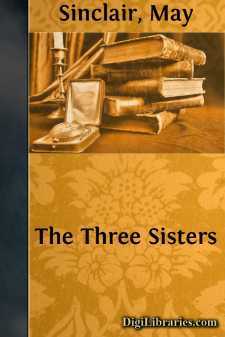Categories
- Antiques & Collectibles 13
- Architecture 36
- Art 48
- Bibles 22
- Biography & Autobiography 815
- Body, Mind & Spirit 144
- Business & Economics 28
- Children's Books 18
- Children's Fiction 14
- Computers 4
- Cooking 94
- Crafts & Hobbies 4
- Drama 346
- Education 58
- Family & Relationships 59
- Fiction 11835
- Games 19
- Gardening 17
- Health & Fitness 34
- History 1378
- House & Home 1
- Humor 147
- Juvenile Fiction 1873
- Juvenile Nonfiction 202
- Language Arts & Disciplines 89
- Law 16
- Literary Collections 686
- Literary Criticism 179
- Mathematics 13
- Medical 41
- Music 40
- Nature 180
- Non-Classifiable 1768
- Performing Arts 7
- Periodicals 1453
- Philosophy 65
- Photography 2
- Poetry 896
- Political Science 203
- Psychology 44
- Reference 154
- Religion 515
- Science 126
- Self-Help 85
- Social Science 83
- Sports & Recreation 34
- Study Aids 3
- Technology & Engineering 60
- Transportation 23
- Travel 463
- True Crime 29
Our website is made possible by displaying online advertisements to our visitors.
Please consider supporting us by disabling your ad blocker.
Audrey Craven
by: May Sinclair
Description:
Excerpt
CHAPTER I
Everybody knew that Miss Audrey Craven was the original of "Laura," the heroine of Langley Wyndham's masterpiece. She first attracted the attention of that student of human nature at Oxford, at a dinner given by her guardian, the Dean of St. Benedict's, ostensibly in honour of the new Master of Lazarus, in reality for his ward's entertainment and instruction in the bewildering art of life.
It was thunder-weather. Out of doors, a hot and sleepy air hung over the city; indoors, the forecast was no less heavy and depressing. Not so, however, to Miss Audrey Craven. The party was large and mixed; and to the fresh, untutored mind of a tyro, this in itself was promising. The Dean pursued the ruinous policy of being all things to all men; and to-night, together with nonentities and Oxonians of European renown, there was a sprinkling of celebrities from the outside world. Among these were Mr. Langley Wyndham, the eminent novelist, and his friend Mr. Percival Knowles, the critic who had helped him to his eminence. Having collected these discordant elements around him, the Dean withdrew from the unequal contest, and hovered, smiling ineffectually, on the outskirts of his little chaos. Perhaps he tried to find comfort in a conscience satisfied for a party spoiled. But for Audrey this wild confusion was rich in possibility. However baffling to those officially responsible, it offered a wider field for individual enterprise; and if she did not possess that fine flow of animal spirits which sometimes supports lesser minds under such circumstances, she had other qualities which stood her in good stead. Conspicuous amongst these was an indomitable moral courage. She prepared to hurl herself into the breach.
Wyndham was standing a little apart from the herd, leaning against the wall, as if overcome by an atmosphere too oppressive for endurance, when he saw his friend approaching him. Knowles was looking about him with eyes alert, and that furtive but uncontrollable smile which made ladies say, "Yes; but Mr. Knowles is so dreadfully cynical, you know."
"By the way, Wyndham—I don't want to startle you, but there is a lady here who particularly wants me to introduce you to her."
Wyndham turned on him a look terrible in its dignified reproach.
"Anything but that, my dear fellow. No more introductions to-night, please. I've just suffered torture from an unspeakable youth from Aberdeen, who expected me to rejoice with him because Oxford is at last recognising the 'exeestence of a metapheesical principle in the wur-r-ld and mon——'"
"I admit that the party is dull, from a mere worldling's point of view. But it's a glorious field for the student of human nature. And here's an opportunity for exceptional research—something quite off the beaten track. The admirer of you and all your works is the lovely Miss Craven, and I assure you she's creating a sensation at the other end of the room."
"Which is she?"
"There, the girl with the copper-coloured hair, talking to Broadbent."
"Ah, that one. No, thanks. I know what you're going to tell me—she writes."
"She doesn't, but she's pretty enough to do that or anything else she chooses. Scandal says she's looking for a religion. She must be a simple soul if she thinks she can pick up the article in Oxford."
"Oh, I don't know. Religions are cheap everywhere nowadays, the supply being so remarkably in excess of the demand, and Miss Craven's soul may be immortal (we'll give it the benefit of the doubt), but its simplicity is un grand peut-être. What's the matter?"
"It makes me ill to see the way these fellows go about leading captive silly women. Do look at Broadbent cramming his spiritual pabulum into that girl's mouth. Moral platitudes—all the old crusts he can lay his hands on, soaked in the milk-and-water of sentiment."
"And a little new wine—with the alcohol extracted by the latest process; no possible risk of injury to the bottles. Don't be uneasy; I've been watching her all evening, ever since I found her in a corner with the unspeakable youth, talking transcendentalism....












